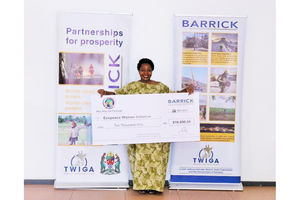Brazil spends Sh21bn on cotton production in East Africa

Deputy minister for agriculture, Mr Innocent Bashungwa
What you need to know:
Delegates from three East African states, Burundi, Kenya and Tanzania, and Brazil are holding a stirring committee to discuss the achievements and challenges facing the cotton sector.
Mwanza. A total of $9 million (about Sh21 billion) will be spent on implementation of the Victoria Cotton Project, which is financed by Brazilian Corporation Agency.
Speaking during a meeting of members of a steering committee that discussed the achievements and challenges facing the cotton sector, the Brazilian Ambassador to Tanzania, Ms Antonio Cesar, said the money will be spent in Tanzania, Kenya and Burundi.
He said the project was launched in 2016 and that actual implementation started in 2017.
“We are here to utilise the techniques developed in Brazil in the Tanzanian environment,” said Mr Cesar.
The deputy minister for agriculture, Mr Innocent Bashungwa, stressed despite Tanzania being among the best cotton growing countries in Africa, there were still shortage of cotton processing factories, a situation that still hinders farmers from attaining their earning targets.
He said 17 regions in Tanzania Mainland and 56 districts grew cotton, but the outcome was not bad due to lack of modern farming skills.
“Poverty is among the major reasons for failure to meet production standards. We hope at the end of this steering committee, various cotton stakeholders and extension officers will be in position to share the experience with farmers at the grassroots,” said Mr Bashungwa
He added that the goal was to triple the production of the crop from 300 kilograms per hectare to 4,200 that is harvested in Brazil.
For his side, Gabriel Mwalo, acting director of the Tanzania Cotton’s Board, said Brazil decided to have this project (Cotton Victoria) in East Africa after submitting their complains before the World Trade Organisation over America setting trade barriers in the growing countries.
Meanwhile, for her part, a researcher from Tanzania Agricultural Research Institute, Ms Everina Lukonge, said this project had taken some members from Tanzania to Brazil to study various techniques they applied to meet projected yields.
“We had one officer from Magu, two from Kwimba and three from Misungwi, who went to Brazil for about three months with a view to sharing experiences. We hope this project will bear fruit,” said Mr Lukonge.


